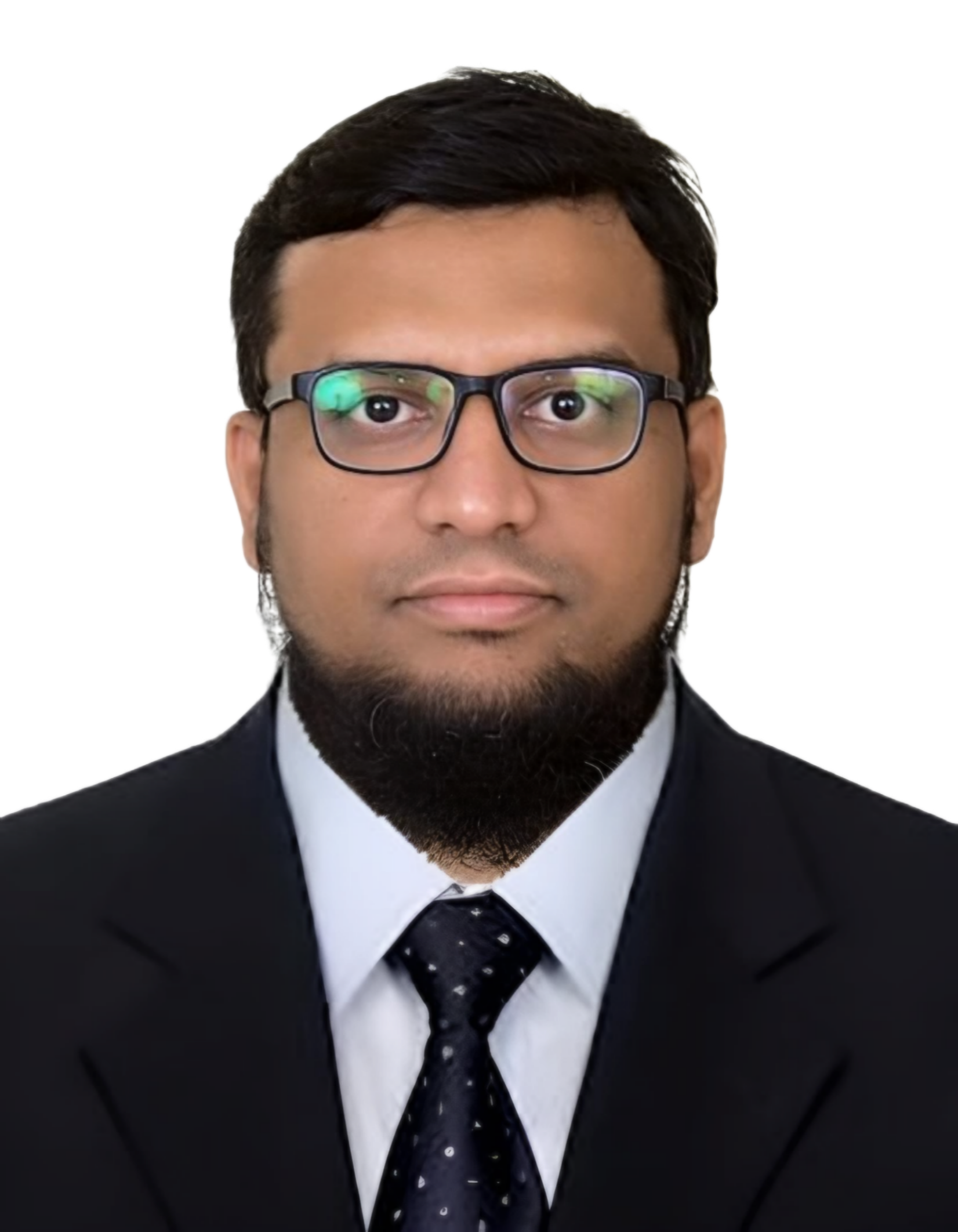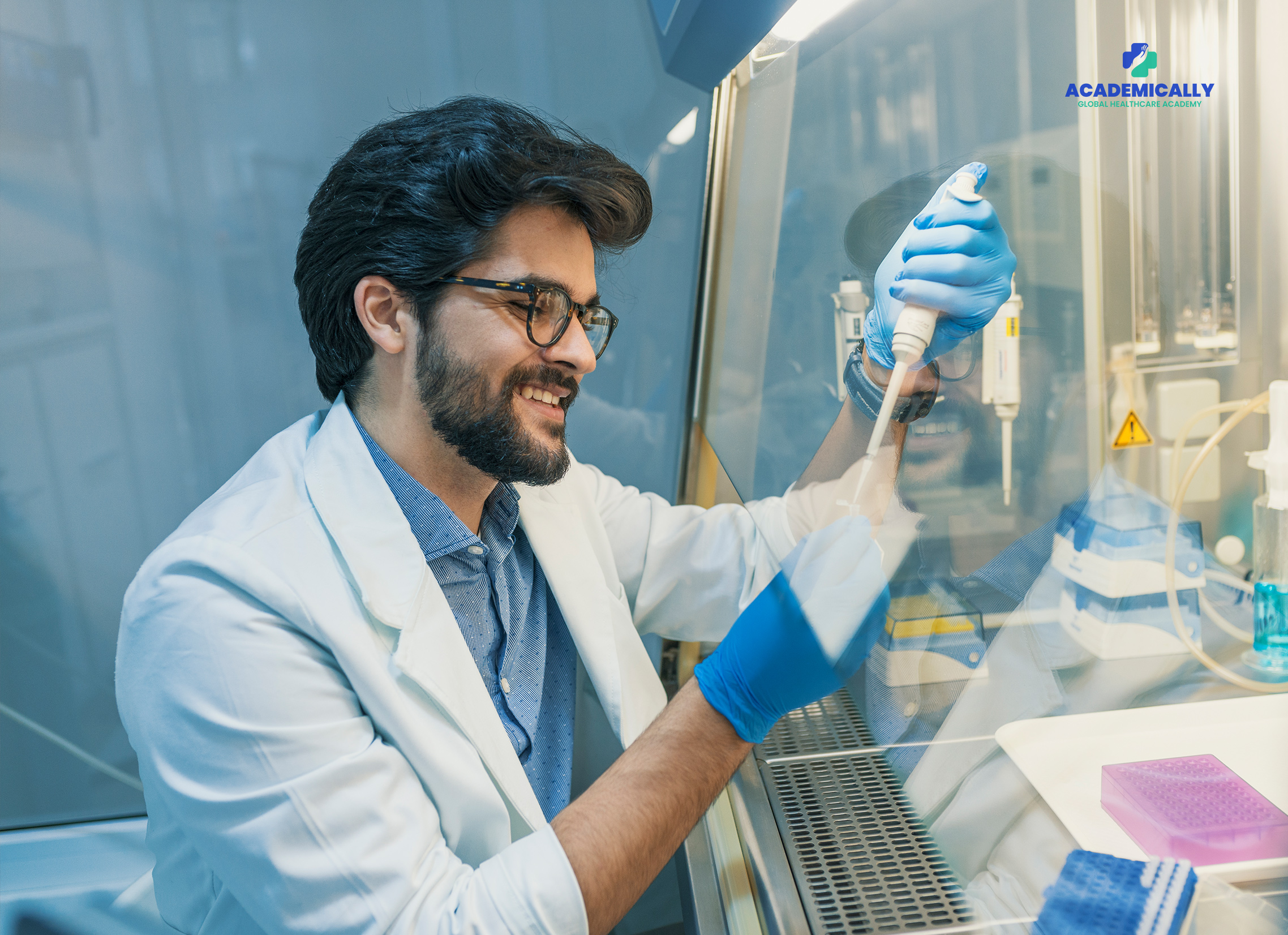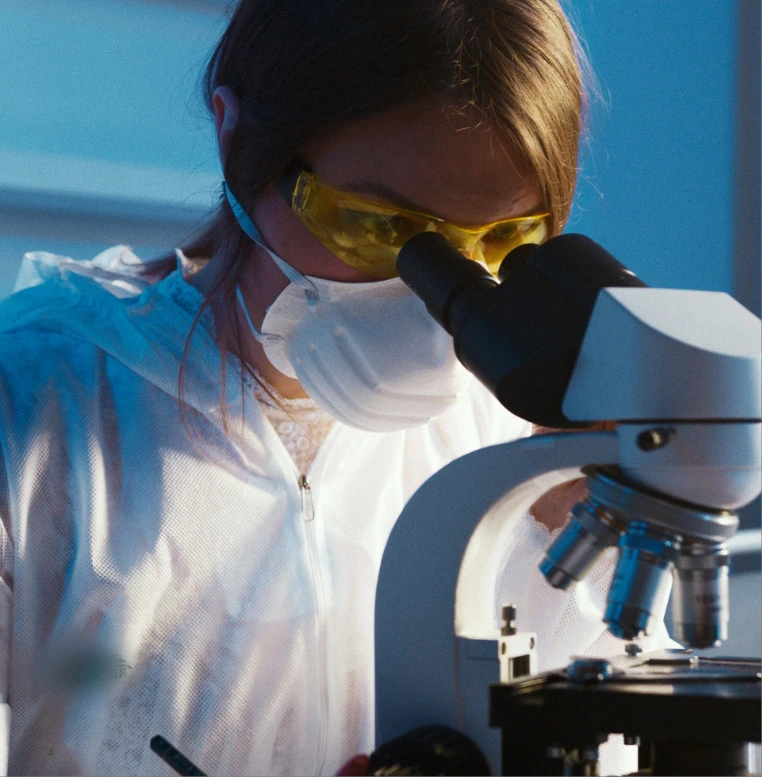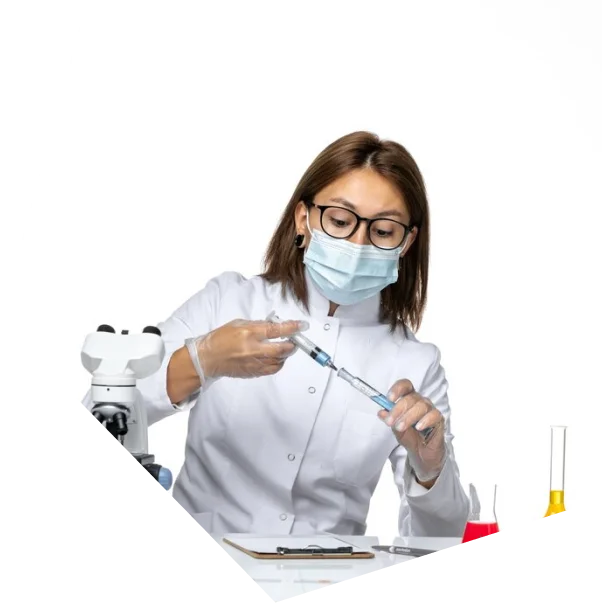
100 hours of recorded videos

One-on-one feedback sessions with the trainer

Highly skilled trainers, who have previously worked as lab technicians/scientists and lecturers in India and Australia
Why Become a Laboratory Scientist in Australia?
$82,000
Average annual salary of laboratory scientists in Australia
3000+
Current openings for the role of laboratory scientist in Australia
185,000+
Visas for skilled medical workers in Australia
About The Course
The AIMS Professional exam course is designed for those lab technicians and scientists seeking professional recognition and career advancement within the Australian medical laboratory industry.
Led by experienced instructors with extensive expertise in medical laboratory sciences, the course curriculum is carefully curated to ensure a thorough understanding of the exam content and promote critical thinking skills.
The primary goal of this course is to provide the students with the necessary study materials, mock tests, question banks etc. to help the students crack the exam in one go.
The course offers lifetime Extended Access to our private chat group with qualified lab technicians/scientists and free webinars on AIMS exam tips, CV writing, etc.
Who Is The Course For?
Medical laboratory technicians and scientists who want to practise, migrate, and settle in Australia.
Candidates who are appearing for the AIMS exam for the first time
Ideal for candidates who want to take on the examination with full preparation
What's More That
Comes With Our Course?

1-On-1 Q&A Sessions
We provide online one-on-one counselling and Q&A sessions to ensure online learning is beneficial for the aspirants. Our mentors help aspirants clear their doubts and queries and get all the answers they need.

Live+Recorded Sessions
Missed a live lecture? Don’t worry. You can always find a recorded lecture on our platform and revisit it as many times as you want during the course duration.

Extended Course Access
Getting the course once will help you prepare for not one but multiple attempts. You get access to all the resources for more than a year, to ensure proper revision.

Community Building
We help you get in touch with a community of experts, which includes mentors, registered practitioners, previous alumni and those who have successfully cleared the exams. This adds value to your preparation and get all the guidance and motivation you need.
Explore The Full Curriculum

Overview of the AIMS exam

Normal cell types in cytological specimens

The cytological features of inflammation and neoplasia in cervical smears

The Papanicolaou staining technique

Fixation of cytological specimens

Histochemical methods as applied to light microscopy such as PAS and Perls Prussian Blue for Iron

Normal histology especially basic tissue types

Preparation of specimens for light microscopy including fixation and tissue processing, decalcification technique and general straining methods such as Haematoxylin and Eosin stain, Van Gieson stain and Masson Trichrome stain.

Quality control concepts as they apply to the automated biochemistry laboratory

Bioinstrumentation including immunoassay, spectrophotometric assays and point-of-care testing

Endocrinology such as thyroid function tests and adrenal function tests

Basic virology tests performed in core laboratory settings

Common tumour markers

Myocardial function tests

Enzyme tests

Calcium, phosphate, magnesium

Principles of enzymatic analysis

Specific plasma pr

Plasma proteins and protein electrophoresis

Lipid analysis

Liver function tests

Glucose, glucose tolerance, HbA1c

Urea, creatinine and creatinine clearance, uric acid

Blood gas and electrolyte measurement

Awareness of next-generation sequencing techniques

Sample integrity for DNA and RNA-based techniques

Principles of reverse transcriptase PCR, real-time PCR and multiplex PCR

Principles of basic thermal and isothermal PCR techniques including sample preparation and use of controls

Common mutations in oncology, inborn errors of metabolism

Chromosome structure and common pathologies associated with chromosomal abnormalities

Influence of epigenetics on phenotypes

Transcription and translation

Mitochondrial DNA

Structure of DNA and all forms of RNA

Basic understanding of inheritance

Pre-analytical factors in haematology and coagulation

Quality control in haematology and coagulation

Malaria testing and species

Fibrinolysis

Natural anticoagulants

Bleeding disorders

Anticoagulant therapy and methods of monitoring this therapy

Intrinsic and extrinsic coagulation pathways and methods of testing

Iron metabolism

Production of erythrocytes, leucocytes and platelets

Lymphoproliferative disorders

Myeloproliferative disorders

Normocytic anaemia

Microcytic anaemia

Macrocytic anaemia

Principles of automated cell counting

Principles of immunology-based assays

Acquired and inherited immune deficiency conditions, major autoimmune conditions, and their laboratory investigation

Mechanisms of hypersensitivity and their laboratory investigation

Monoclonal antibodies, their production, properties and uses

Key cytokines I.e., IL-1, IL-2, IL-4, IL-6, IL-17, TNF and their functions

Immunoglobulin properties and functions

Cellular and humoral immune response

Adaptive and acquired immune mechanisms

Basic understanding of the structure and function of the immune system

Safety in the microbiology laboratory, biosafety cabinets, biosafety levels

General principles of quality control and quality assurance as it applies to microbiology

Staining techniques: Gram stain, Ziehl Neelsen stain, Modified ZN stains

Microscopy: Function and maintenance of a modern binocular microscope, including setting up and using for bright-field, phase-contrast and dark-field microscopy

Principles of major methods of susceptibility testing I.e., disc diffusion, agar dilution and broth dilution and the relationship between breakpoints, MIC, and susceptible/resistant categories

Knowledge of normal flora (indigenous flora) of major body sites or absence of normal flora in sterile body sites.

Collection, handling, and processing of samples including the minimum criteria for acceptance of samples

A basic knowledge of infectious diseases and organisms most commonly associated with these diseases. There will be a greater emphasis on bacterial diseases, but some knowledge of parasitic, fungal and viral diseases is also expected.

Internal quality control and external quality assurance in the blood bank

Quality assurance in the blood bank laboratory

Haemolytic disease of the foetus and newborn

Blood group systems

Pre-transfusion testing

Antibody detection and identification

Blood components

Blood donation testing

Antibody production

Antigen/antibody interaction

Antibody structure and function

Handling of infectious specimens

Sterilisation and disinfection procedures

Safe handling of hazardous chemicals

Safe handling of biological specimens

Uncertainty of measurement

The role of internal quality control and external quality assurance

Simple statistical evaluation, reference ranges methodology - parametric and non-parametric

Basic charting and rules for rejection of results

Spectrophotometry

Basic laboratory equipment and its appropriate use

Basic laboratory calculations

Normal and molar solutions
Meet The Instructors

Dr. Amanulla Khan
MBBS. MD (Pathology), (USMLE & Prometric Qualified)
5 years of Experience
- Dr Amanulla Khan is a pathologist working as Laboratory and Blood Bank Director for the Ministry of Health in Saudi Arabia.
- He has completed his MBBS and MD in Pathology from Osmania Medical College, India.
- Dr Khan possesses an immense passion for teaching and experience of 5 years teaching MBBS, BDS, and MLT students.
- Additionally, he has cleared the USMLE and DHA Prometric Examinations.
- Dr Khan has joined hands with Academically for the AIMS Exam Preparation Course- to help aspirants who wish to work as lab technicians in Australia.
Our Testimonials
Firstly, i am very grateful towards academically team. It has been a month being student of Academically.They focus in the specific, relevant and important content which they are assisting us to Crack KAPS. In this period, i found they are concentrating on Quality rather than Quantity. I am very delightful because of your guidance and support.
I would like to thank all tutors and teams for providing us necessary resources and guidance to pass the KAPS examination. I was fully dependent on their materials and was worth it. The tutors guidance helped me to pass the exam on my first attempt. I heartily recommend others to join academically if you want to pass KAPS examinations.
Very good Academically plateformfor your nice dream health professional to achivement for other countries like Australia
Well it's a wonderful institution that will help you in getting the basic concepts revised of all the important subjects required in KAPS exam. The faculty is very awesome, the technical staff is really cooperative, the website/mock tests are designed same as that appear in the actual exam, the recalls are there, practically all the requirements for you to appear in the exam confidently, highly recommended👏
Hello guys, today I am very happy after seeing my result, I am student of academically from july batch, as per my experience all the staff members including the teachers are vey helpful and having a lot of knowledge regarding KAPS examination. Each session is very informative and productive. Academically provide very precise syllabus and made it very easy exam for international health care professionals. I would definitely recommend academically for those aspirants who are looking their way to come in Australia as a Pharmacist. A lot of thanks to academically to help me and provide me guidance, and today many of their students crack the exam.
Took the classes for Australian Physiotherapy written assessment (APC) and had a positive experience. Michael sir and Manasi mam we’re very knowledgeable and had an amazing time learning from them. The concepts were made easy and practice exam helped a lot. Big shoutout to Shohini for coordinating everything and helping me through this journey.
I came to know about academically through Instagram. I have being a part of this family since 1 month. I have joined for both PTE and APC classes. Classes are really good. As a working person, i thought it will be difficult for me to attend classes, but the recordings provided by the team is really helping me a lot. I would like to appreciate the team for the both the LMS and discord applications, which is making my exam journey easier.
Good guidance.. for how to approach the AMC (Australian Medical Council) exam and comprehensive review.
Greetings from Papua New Guinea. At first I didn’t know where to start and how to approach the AMC MCQ exam. Since June 2023 when I started this sessions on AMC preparation the story is different now. The Two lecturers Namely, Dr Swapnil and Dr Udara are exceptionally committed and deliver well. The team is always available to answer to us anytime. They provide great support. I have not done the skill assessment yet, hoping to get that done this week and hopefully I will sit for the exam in November 2023.
The session was informative and worthy. I got to know more career options about the field which currently I'm pursuing. Working internationally, career options overseas, information about pharm. D and MD, etc are the things which is new for me and actually very informative. Interacting with the guest was really helpful and had influenced me positively.
I recently passed the KAPS exam, and I owe a huge thanks to Academically. Their support and guidance helped me throughout my preparation. The teachers were exceptionally kind and explained complex concepts in a way that made them easy to understand. I wholeheartedly recommend Academically to any aspiring individuals preparing for the KAPS exam in the upcoming years. Their excellent support, knowledgeable faculty, and effective teaching methods are the perfect choice for exam preparation.
Academically is a great platform to achieve our dream. I recently joined but the classes they providing is very informative and understandable and they always ready to help and clarify our doubts regarding our KAPS preparation. Thank you so much to team Academically for your valuable support.
Academically is an organisation which able to qualify the Australian KAPS exam. I have good experience with academically. It's provides all necessary knowledge and stuffs for the KAPS.
Success Stories
If I hadn't gotten the right guidance and coaching as I got from Academically, it could have been still very difficult for me. I relied more on recorded lectures, the lectures were very informative to the point, concise and precise. Whenever I asked doubts it was cleared immediately. I have been very lucky to get coaching from Academically.
Deepak Kumar
Canada, KAPS Qualified July 2023
My heartfelt thanks to Academically for making me pass the KAPS Exam. The lecturers are perfect and you will get guidance according to Australian terms. In my KAPS Exam, 90% questions were from the Academically’s mock test. I would definitely recommend Academically for those who want to migrate to Australia as a pharmacist.
Rajendra Airee
Intern Pharmacist at Chemist Warehouse, Melbourne, Australia
If you write the exam, you can pass the exam. With the right guidance and support of Academically, I got the opportunity to work as a pharmacist intern in Australia. I got the visa in just 1 month and I have also got a great contract for 3 years.
Ahmad
Intern Pharmacist, Rushworth Victoria, Australia
I am a recent MBBS graduate. It was through Academically’s platform and with the guidance of Academically’s counsellors that I came to know about the AMC exam. I found the course so fascinating, and as a result, I enrolled on Academically’s course, and with only four months of preparation, I was able to clear the AMC exam! Thanks to Academically, I achieved a triumph on my first attempt!
Dr. Ragasri Meghana Dasari
AMC-Qualified Academically Alumni
Since childhood, I had a dream of settling overseas, and when I came to know about the AMC exam for doctors, I found that Academically’s name was all over the internet. I got the best counselling and support from Academically’s experts, and within a few months, I was able to clear the AMC exam to realise my dream of overseas migration.
Dr. Sajana Varghese
AMC-Qualified Academically Alumni
On joining Academically’s APC Preparation Course, I found that the remote and recorded sessions were highly beneficial since the time difference was huge. The course helped me study from global experts but at my own pace and time. The support and motivation provided by the instructors played a major role in my success. I thank Academically for providing the necessary resources and structure that helped me navigate the APC exam successfully.
Howard Rice
APC Qualified Physiotherapist
I focused on Academically’s resources, such as live lectures and mock tests, and I am thankful to the faculty and Academically team for helping me ace the KAPS exam. I was able to revise and ace pharmaceutical calculations thanks to Academically’s mentors, sample papers, and AI-based mocks that helped me understand the concepts.
Zeeshan
KAPS Qualified Student
I highly recommend Academically as the perfect partner for all healthcare professionals trying to clear the KAPS or any other healthcare registration exam. The resources, the faculty, the guidance sessions, everything played a key role in my success. I thank Dr. Akram and complete Academically team for helping me clear this great pharmacy examination!
Arya
KAPS Qualified Student
I heard about Academically from a friend and I must say, I never imagined that I would be able to clear the Ministry of Health (Sharjah) exam in my very first attempt. But Academically helped me achieve this benchmark. The live and recorded lectures were a game-changer for my preparation and over 70% of the exam was based on the questions Academically offered in the mock tests!
Zainab
MOH Qualified Student
I am delighted to have chosen AMC due to Academically’s guidance, and clearing it was an important milestone in my career advancement journey. Academically’s team was trustworthy, supportive and guided and prepared me for the Australian Medical Council Examination, and I am extremely happy that I came across this amazing platform!
Dr. Sajana Varghese
AMC Qualified Student
The practice questions offered by Academically were everything I needed to prepare for the AMC exam and achieve success! My journey was pretty smooth, thanks to Academically that helped me eliminate procrastination and go for the exam. Besides exam preparation, Academically’s team helped me gain confidence, prepare for this journey and complete all steps easily.
Dr. Anushtha Chandra
AMC Qualified Student
Academically helped me clear the Australian Physiotherapy Council Assessment within 1-2 months of dedicated preparation. The whole Academically team offered me rock-solid support, helping me achieve this amazing milestone! The faculty was extremely supportive and from choosing the right exam to acing it, Academically helped me throughout the process.
Dr. Zomia Riaz
APC Assessment Qualified Student
About The AIMS Examination
What is the AIMS Exam?
The AIMS Professional exam is conducted to assess the overseas-trained medical laboratory technicians and scientists to determine if they are eligible for the skilled occupation of medical laboratory scientist and for professional membership of AIMS. The AIMS Medical Laboratory Scientist Professional exam is an important milestone for individuals aiming to become certified medical laboratory scientists in Australia. It evaluates a candidate's understanding of various scientific concepts, and laboratory techniques, and their ability to apply these skills. There are various AIMS Professional exam centres around the world.

AIMS Exam Eligibility Criteria
A candidate who has completed a degree in medical laboratory technology (BMLT) is assessed as comparable to an Australian Associate Diploma from a Technical and Further Education college based on the NOOSR educational assessment guidelines in the Country Education Profiles.
Also, medical laboratory experience is also required. The eligibility to apply for the exam is mentioned below.
- A bachelor’s degree in medical laboratory technology
- Minimum two years of work experience in the medical laboratory (falling within the five-year period immediately prior to the assessment application)
- English language proficiency (IELTS/OET/PTE)
Procedure for AIMS Exam
To be eligible to work in Australia as a medical laboratory scientist, a few steps need to be followed.
1. English Proficiency
The candidate applying for the AIMS professional exam should be proficient in the English language and must provide proof for the same while applying. By taking tests like IELTS/OET/PTE, English proficiency can be evaluated. The candidate should have a band score of 7 in each component.
2.Skill Assessment
The application for the assessment should be submitted along with the supporting documents. At this point, the AIMS verifies the submitted documents. Once the above procedure is completed, the Australian Institute of Medical and Clinical Scientists completes the assessment, and the candidate will receive the results via mail.
3.AIMS Professional Exam
Take the AIMS Professional Exam through an online mode, and clear it to get registration as a Medical Laboratory Scientist in Australia. The exam is 3 hours long and is an online proctored test.
AIMS Exam Format
The AIMS Professional exam consists of 150 multiple-choice questions with single responses to be completed in three hours. A student needs to give 80 correct answers in a 3-hour period to clear the exam. The exam is generally conducted twice a year: March and September.
Only the candidates aspiring to become medical laboratory scientists are required to sit the written exam.
AIMS Exam Test Centres
The AIMS Professional exam is an online proctored exam that can be taken at any place. You need to register with AIMS, meet the conditions of a testing centre, and take the exam under their supervision online.
Frequently Asked Questions
The average annual salary of a medical laboratory scientist in Australia is $82017
The AIMS Professional exam is an online proctored exam that can be taken at any place. You need to register with AIMS, meet the conditions of a testing centre, and take the exam under their supervision online.
The AIMS Professional exam is valid for three years from the date of the test.
Yes. A medical laboratory technician trained in India can work in Australia, provided that he/she clears the AIMS skills assessment.
189 Permanent Visa, Skilled Independent 190 Permanent Visa, State Sponsored 491 Provisional Visa and Regional Skilled Work Visa.
The candidates are required to score at least 65 points in each of the 4 components of the test.
Yes. There is a rising demand for lab scientists in Australia, especially for the ones with remarkable communication skills.
The proper diagnosis and treatment of patients depend greatly on the work of medical laboratory scientists. They are supposed to run tests and collect samples to assist doctors and other medical experts in identifying ailments and treating patients.
A medical laboratory scientist and a medical lab technician are similar, yet there are a few major distinctions. They both work in labs and conduct tests on biological materials, but a medical lab scientist often has more schooling and can undertake more sophisticated lab work. More of the routine lab work is performed by a medical lab technician, who frequently works under the supervision of a medical lab scientist.
Medical laboratory scientists are generally employed by pharmaceutical businesses, biotechnology firms, veterinary clinics, public health laboratories, hospitals, clinics, and other healthcare facilities.
Do you have more Questions ?
Our Services Are Way Beyond Exam Preparations!

Resume Tips
Get proven tips from experts on building a robust resume to help you land your dream job.

Interview Preparation
Chisel your interview skills to ensure you mesmerise the interviewers into giving in.

Career Support
Receive support at each step of your journey- during your exam preparation and beyond.
Connect with our 1000+ alumni working at recognised organisations








Related Courses
Scholarship Available
AIMS Exam Preparation Crash Course Become a Registered Medical Lab Technician in Australia


AUD 999*
EMI Starting From

8 Lessons

115 Students

